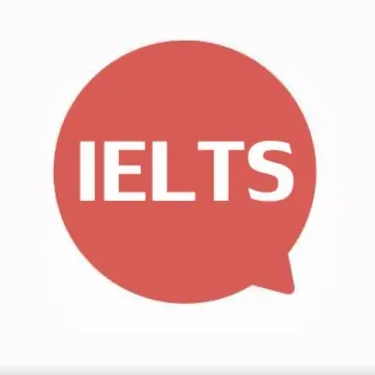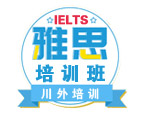雅思写作:9分例文点评
2015-03-25 09:33 | 编辑:川外雅思培训中心 来自:未知导读:Children who grow up in families which are short of money are better prepared to deal with the problems of adult life than children who are brought up by wealthy parents. To what extent do you agree or disagree? Some feel that the children
Children who grow up in families which are short of money are better prepared to deal with the problems of adult life than children who are brought up by wealthy parents. To what extent do you agree or disagree? Some feel that the children of low income families are better equipped to deal with difficulties posed by the ‘real world’ when they grow up and they also believe the privileged children of wealthy families are less fit to deal with these difficulties . The implications and veracity of this argument seem self-evident, but in fact require closer examination. ( 58words )
点评:
1+ 1 ’ 形式,最终 1 句为主题句。此段的主题句略微有点特殊,它的确否定了前面所说到的观念,从而表达出了自个的观念,此外还引出了下文。
特别是最终半句:but in fact require closer examination ,感受是在抛砖引玉。
The popular wisdom is that children of poorer families learn early on the value of a buck, and are thus naturally better suited to stretching moneywhen times get tough in adulthood. Inversely, the children of wealthy families, thoseborn with a silver spoon in their mouths, are believed to be completely ignorant of the value of money, having had everything provided for them in their youth and oftentimes erroneously expecting the same situation in adulthood. They are believed to be prone to overspending and financial irresponsibility. This belief, though logical, overlooks one key point which is , of course, education. (100words)
点评:
1 ’ +3 形式,第 1 句是主题句。请注意,从此段的内容来看,这是个退让段(即剖析自个并不拥护的观念)。尽管 4 段论的作文的主体段是双面讨论,可是小编仍是喜爱这样的写作,即主体段的观念仍是有侧重的,把退让段放在前面,最终 1 句话引出下一段,这样过度地很天然,并且自个的观念也比较清晰!
The basis of this argument is , of course, knowing the value of money, and the idea that children of the poor know this, and those of the wealthy do not . Who though, is in a better position to teach their children the value of money; someone skilled in earning and keeping it, the wealthy parent, or someone who can not seem to acquire it, the poor parent? Both wealthy and poor children are equally likely to acquire an education in money, whether it is formal, or in the school of hard knocks. Conversely, both children are as likely to ignore this education. (101words)
点评:
这段的内容感受写得不可直接,仍是在剖析对方观念的缝隙!请注意,前面退让段现已这么写过了,那么这一段最佳是正面地论证自个的观念,这样从内容上来说更 convincing 一点!
此外,需求阐明的是,我们发现作者的内容仍是有必定深度,可是这是要有必定的英语功底才行的!假如英语功底不可的话,主张内容不要写太深,由于那样容易形成考官看不懂你在说啥!
A poor child may believe that one can get along, if not as easily, without wealth. A wealthy child may be well trained by a parent steeped in the knowledge of money management; the key to developing this skill is education.
点评:最终一段有点像是提出处理这个疑问的方法,即 education。它没有像传统的结尾段那样简略的重申自个的观念。
最终总结:
全文的观念有待揣摩,作者很明显是不拥护标题的说法,即 Children who grow up in families which are short of money are better prepared to deal with the problems of adult life than children who are brought up by wealthy parents。可是作者自个是更倾向穷人家的孩子呢,仍是富人家的孩子呢?根据文章来看,作者是中立,他所垂青的是他们所承受的教育。
In other words,整篇文章又是一次中立的写法。在雅思考试中,这种写法常常运用,仍是十分有用的,我们能够学习一下。
此外,文章中有很多好词好句,特别是长句,值得仿照一下,此篇9分雅思作文。
点评:
1+ 1 ’ 形式,最终 1 句为主题句。此段的主题句略微有点特殊,它的确否定了前面所说到的观念,从而表达出了自个的观念,此外还引出了下文。
特别是最终半句:but in fact require closer examination ,感受是在抛砖引玉。
The popular wisdom is that children of poorer families learn early on the value of a buck, and are thus naturally better suited to stretching moneywhen times get tough in adulthood. Inversely, the children of wealthy families, thoseborn with a silver spoon in their mouths, are believed to be completely ignorant of the value of money, having had everything provided for them in their youth and oftentimes erroneously expecting the same situation in adulthood. They are believed to be prone to overspending and financial irresponsibility. This belief, though logical, overlooks one key point which is , of course, education. (100words)
点评:
1 ’ +3 形式,第 1 句是主题句。请注意,从此段的内容来看,这是个退让段(即剖析自个并不拥护的观念)。尽管 4 段论的作文的主体段是双面讨论,可是小编仍是喜爱这样的写作,即主体段的观念仍是有侧重的,把退让段放在前面,最终 1 句话引出下一段,这样过度地很天然,并且自个的观念也比较清晰!
The basis of this argument is , of course, knowing the value of money, and the idea that children of the poor know this, and those of the wealthy do not . Who though, is in a better position to teach their children the value of money; someone skilled in earning and keeping it, the wealthy parent, or someone who can not seem to acquire it, the poor parent? Both wealthy and poor children are equally likely to acquire an education in money, whether it is formal, or in the school of hard knocks. Conversely, both children are as likely to ignore this education. (101words)
点评:
这段的内容感受写得不可直接,仍是在剖析对方观念的缝隙!请注意,前面退让段现已这么写过了,那么这一段最佳是正面地论证自个的观念,这样从内容上来说更 convincing 一点!
此外,需求阐明的是,我们发现作者的内容仍是有必定深度,可是这是要有必定的英语功底才行的!假如英语功底不可的话,主张内容不要写太深,由于那样容易形成考官看不懂你在说啥!
A poor child may believe that one can get along, if not as easily, without wealth. A wealthy child may be well trained by a parent steeped in the knowledge of money management; the key to developing this skill is education.
点评:最终一段有点像是提出处理这个疑问的方法,即 education。它没有像传统的结尾段那样简略的重申自个的观念。
最终总结:
全文的观念有待揣摩,作者很明显是不拥护标题的说法,即 Children who grow up in families which are short of money are better prepared to deal with the problems of adult life than children who are brought up by wealthy parents。可是作者自个是更倾向穷人家的孩子呢,仍是富人家的孩子呢?根据文章来看,作者是中立,他所垂青的是他们所承受的教育。
In other words,整篇文章又是一次中立的写法。在雅思考试中,这种写法常常运用,仍是十分有用的,我们能够学习一下。
此外,文章中有很多好词好句,特别是长句,值得仿照一下,此篇9分雅思作文。
以上信息由四川外国语大学外语培训中心整理,更多信息请访问四川外国语大学重庆雅思培训频道:http://www.sisupeixun.com/yasi/
上一篇:雅思备考全攻略
下一篇:怎样对付雅思阅读中的生词问题
更多资讯请访问 》》》川外雅思培训中心

雅思考试成绩什么时
对于那些已经参加过雅思考试的同学来说,
- [焦点] 携带全球胜任力 与2025一起新出发
- [焦点] 雅思6.5分:迈向国际舞台的坚实基
- [焦点] 雅思备考黄金期揭秘:几个月最合适
- [焦点] 揭秘雅思写作高分秘籍:素材积累与
- [焦点] 写作秘籍大放送!雅思写作提分,我
- [焦点] 雅思写作逆袭指南:解锁小作文,告
- [焦点] 官方秘籍:如何摆脱“雅思紧张体质
- [焦点] 雅思听力高分秘籍:避开陷阱,轻松
- [焦点] 雅思破7全攻略:不收藏后悔一年!
- [焦点] 8月雅思高分秘籍大公开!你准备好











